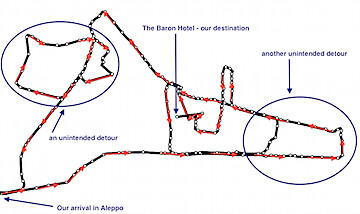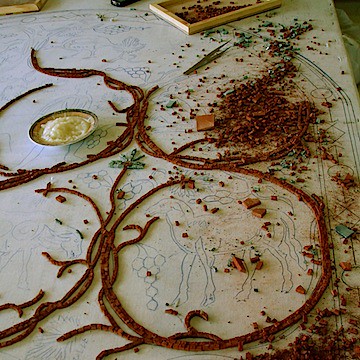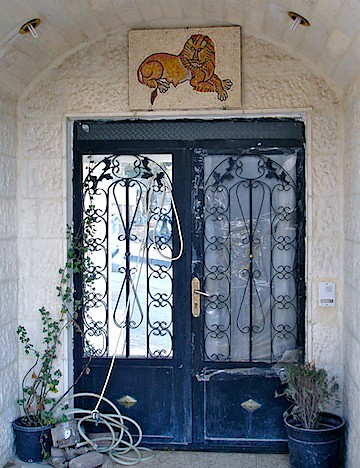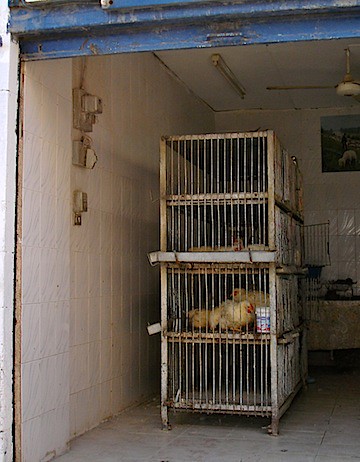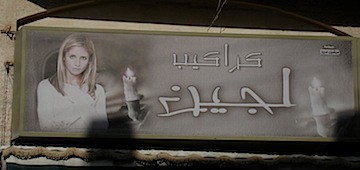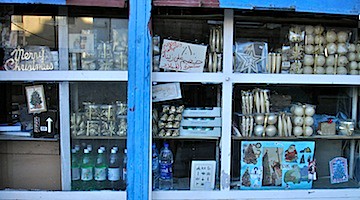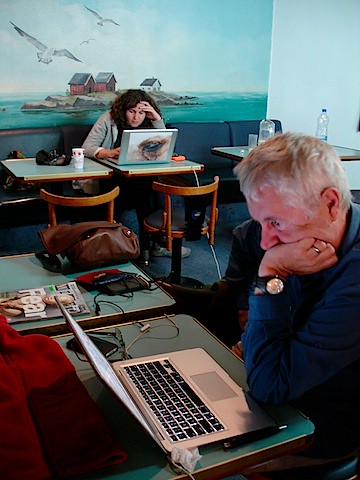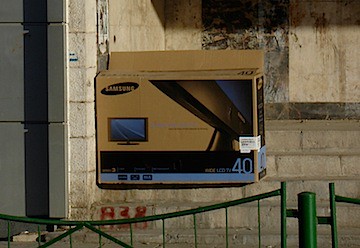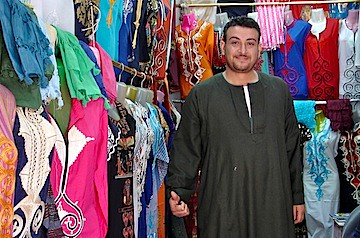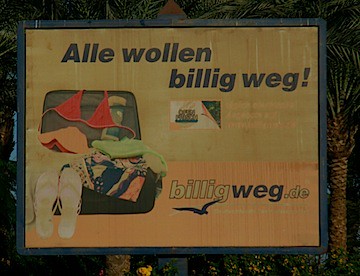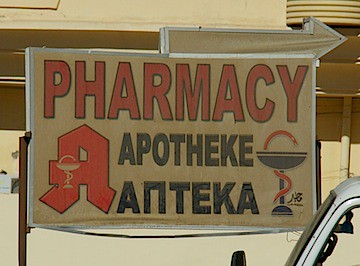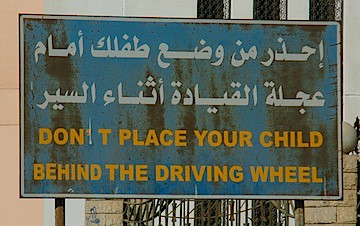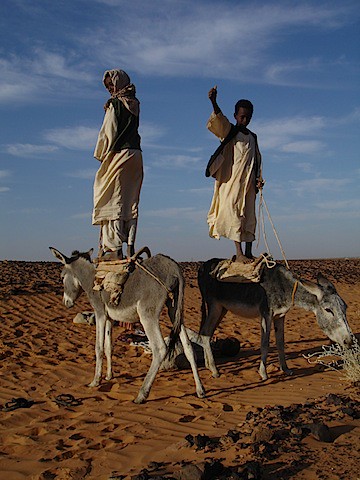We managed to extract the car from Egyptian customs, but only after witnessing the most flamboyant display of ineptitude, corruption and disorganisation so far on this trip.
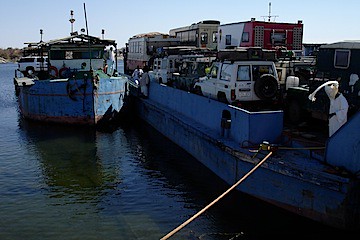
The setting: Aswan’s ferry port, witness to weekly passenger ferries and occasional cargo barges from and to Wadi Halfa in Sudan, and a suburban hellhole complete with sewage repairs and begging children, site of the Aswan traffic police department.
The actors: various overlanders, both amateurs like us and professional drivers of overland trucks; M., the fixer extraordinaire; K., his slow-witted taxi driver (employed by M. only because his uncle is the head of the customs department); a near-blind customs official and assorted policemen on the hunt for baksheesh.
The mission: to convince Egyptian customs, traffic police and various other unmentioned government agents to release nine cars and trucks from the customs zone of the ferry port so that we can bloody well finish our journey.
The backstory: most of us have been waiting to move on for more than two weeks, variously in Aswan, Wadi Halfa and assorted locations in the Sudanese desert. The barge carrying the cars (which runs on a separate schedule from the passenger ferry) was delayed due to Eid, weekends (Fridays) and other unexplained vagaries of Arabic origin. The barge had arrived on Thursday afternoon, complete with five Landrovers, two overland trucks, one MAN truck and a Landcruiser, as well as three dogs. It was now Saturday. Everyone was tense in a different way, everyone wanted to get out of Aswan as soon as possible.

The timeline:
8am - waiting for K. and a second taxi driver to pick us up. Fourteen people sizing each other up at the hotel; I don’t like what I see. Two stroppy Australians and a South African motorbiker who has been heard to call the locals kaffirs. Great.
8.30 - The taxis arrive. We drive to the police station. K. and two members of the group disappear inside with carnets, passports and money. The rest of us get acquainted while leaning on the bonnets of banged-up taxis (ours has done 750,000 km). The Dragoman driver is reading the Daily Express. She must be homesick.
9.30 - The others re-appear, the grand total of their achievements a collection of blank forms in Arabic. We pile back into the cars and take the bumpy road to the port.
10am - Arrival at the ferry port. K. takes the first group through to the offices, while we in the second group are left behind to fend off baksheesh attempts by the gate keeper, who is trying to charge us to pick up our cars.
11am - After a series of phone calls to M. and strong words with the various fixers he sends, we are let into the office as well. We spend an eternity watching the near-blind official painstakingly copying driver names, chassis numbers and registrations from the English forms to the Arabic version. This takes two hours for nine carnets, with multiple breaks for tea and smokes.

12.30 - The barge is now available, sort of. M. has managed to convince the crew that just because the normal pier is blocked by the Minister of Agriculture’s boat (he is returning from a visit to Sudan, and seen speeding off in a very shiny black Merc), we should still be able proceed with unloading. So in order to drive the cars off the barge, we have to manhandle the strangely engine-less craft to shore by all together pulling on a rope, while the captain and his crew shouts encouragement. Taking the trucks and cars off takes a grand total of 15 minutes.
1.30pm - We are still waiting in the port car park for something to happen. M. brings tea. Suddenly a customs official appears, spends 2 minutes peering through the door of each car, asking if we have knives (?!?), and vanishes. Silence returns. We haven’t had lunch. In desperation I spend some time cleaning the fridge and kitchen in our Landrover.
2.30pm - A policeman, ferried in by K. for the occasion, takes rubbings of our chassis and engine numbers before demanding payment for overtime. After collecting E£10 per car he is taken back to town by K. and ennui descends one more.
3pm - We are told to come back tomorrow to complete formalities, as the traffic police has gone home. Aargh!

The denouement: Stuart spent all of Sunday at the traffic police to arrange insurance and registration. He was finally allowed to leave, sporting Egyptian number plates, after yet another official tried to extract a bribe for not doing a proper check. Our fixer, to his credit, called his bluff and told him they’d be happy to unpack the cars so he could do a more thorough search. Luckily the official decided he valued knocking off on time more than the money and let them depart at 4pm.

